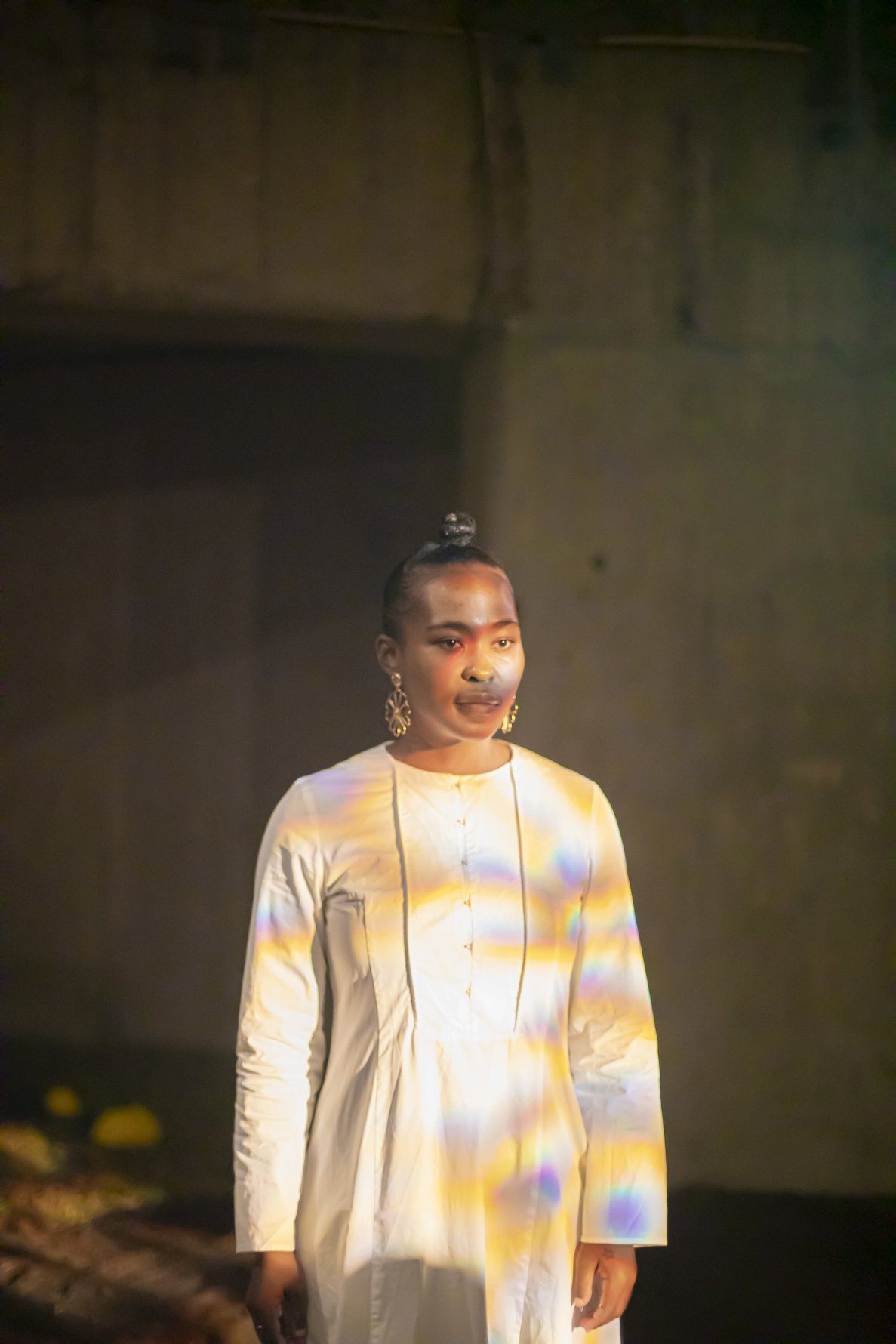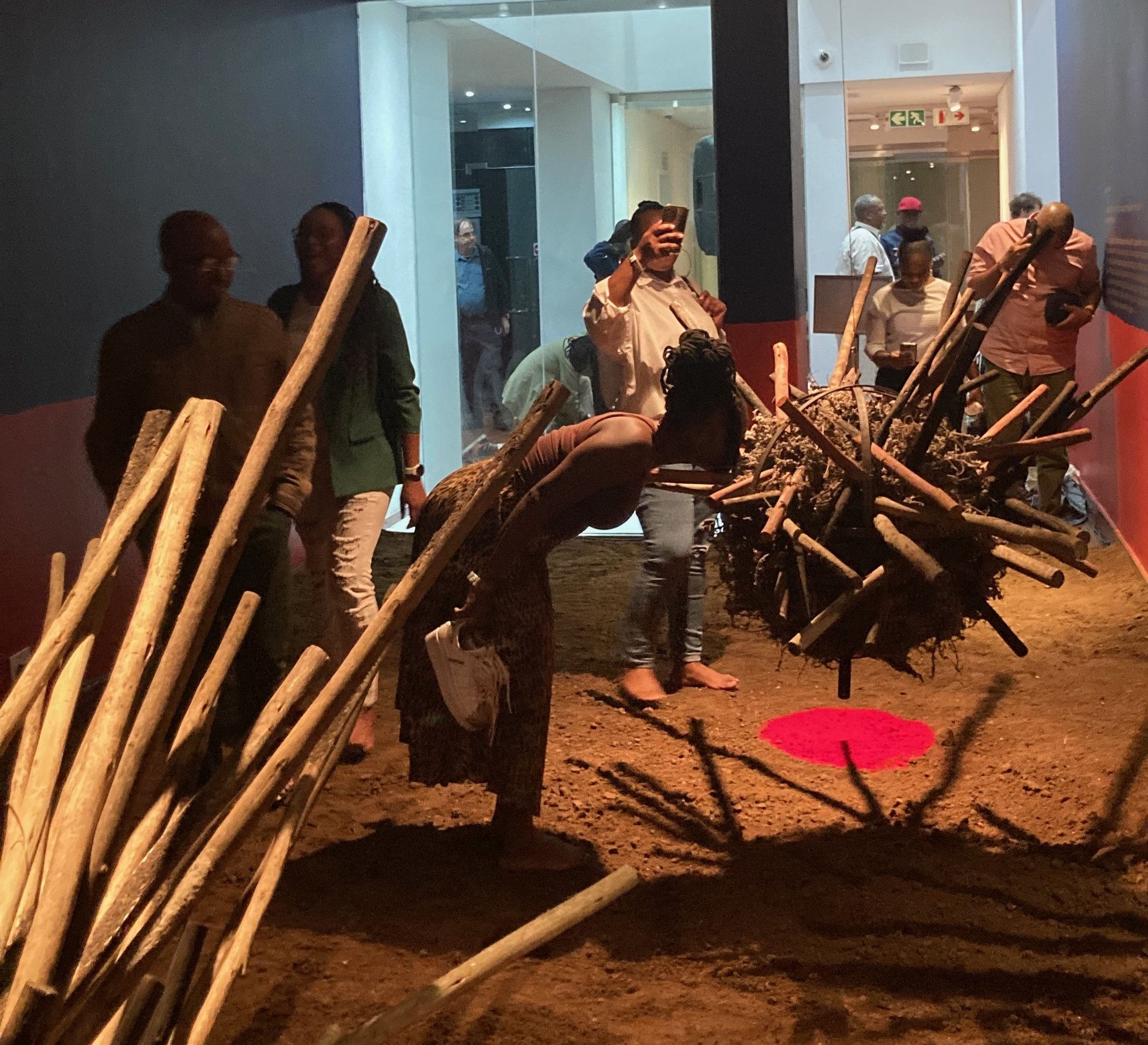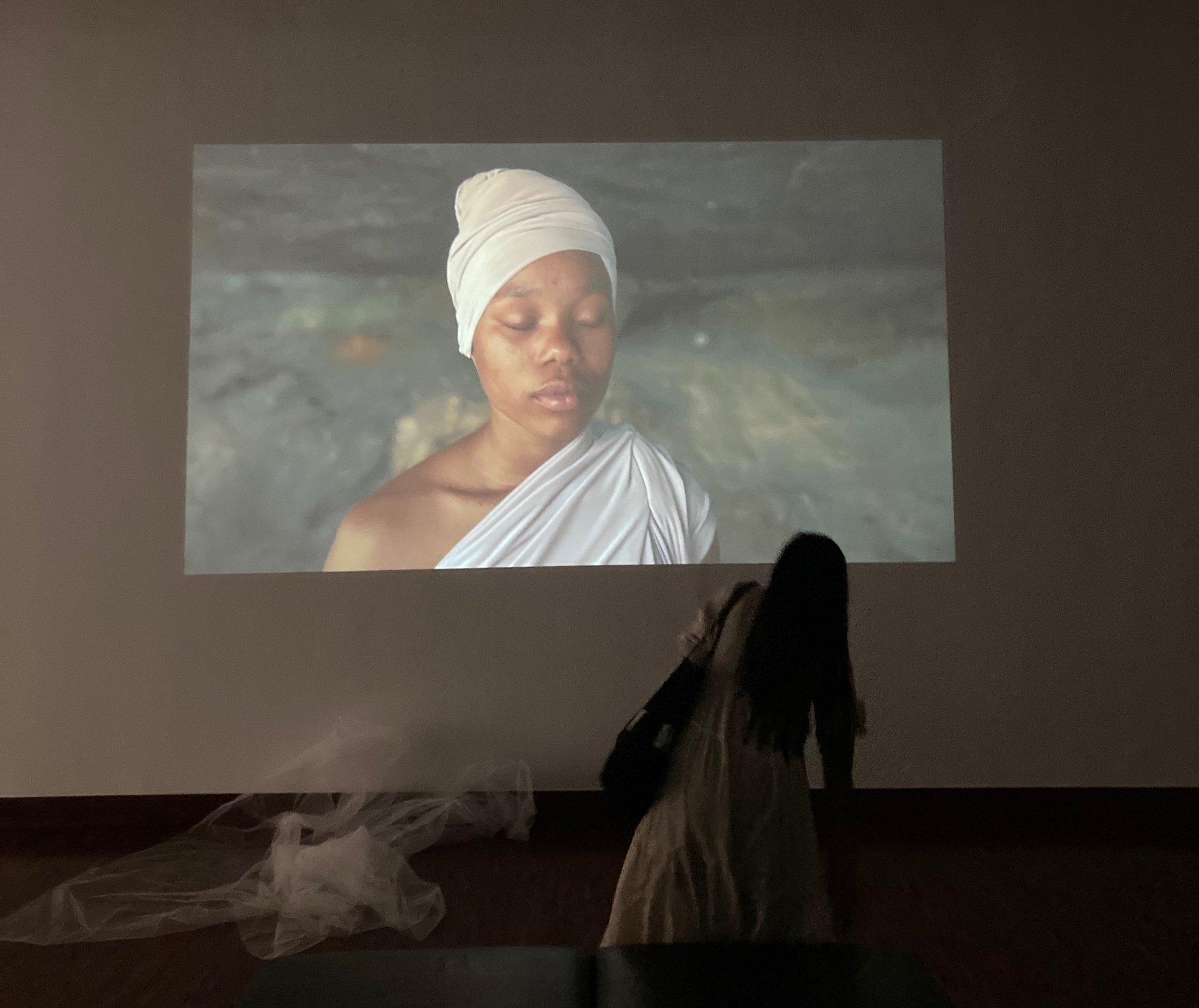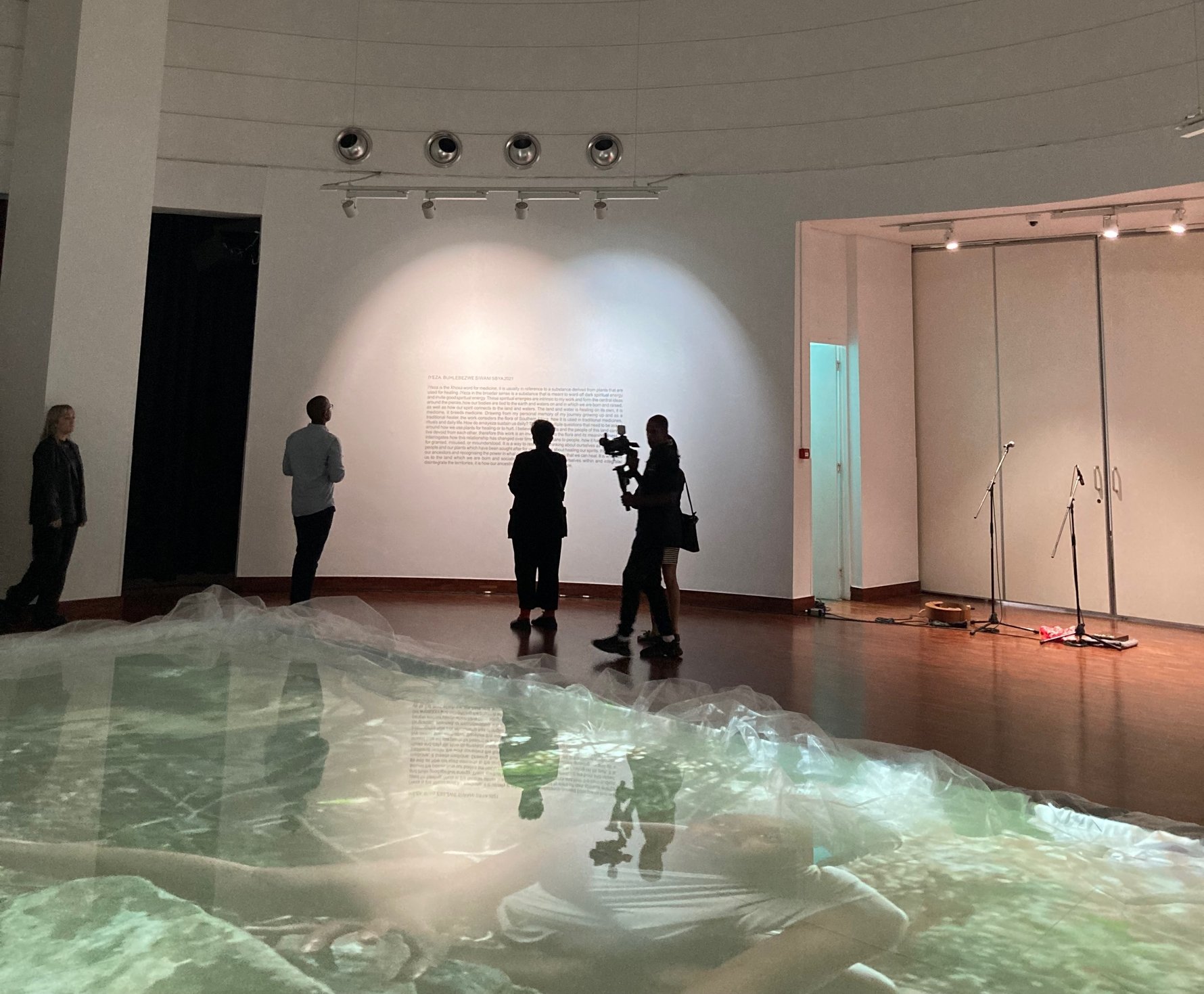"One cannot exist without the other, to make art is to heal. And for me to heal is to make art." – Buhlebezwe Siwani
Buhlebezwe Siwani's landmark exhibition IYEZA at Standard Bank Gallery is an invitation for the viewer to heal, learn and grow and the installations bend matter and time as Siwani explores womanhood, spiritual practices and our connection with nature. As a traditional healer, Siwani uses her artistic practice to heal and vice versa, with her art being another way of connecting with her spirituality. Her unique blend of performance, film and installation has seen her gain global recognition and in 2021 she was awarded the Standard Bank Young Artist Award for Visual Arts. Her exhibition IYEZA, first shown at the National Arts Festival in Makhanda, is a celebration of this and transforms the Standard Bank Gallery's carefully polished floors and stark white walls in such interesting ways. We loved visiting as seeing how the gallery has been shaped by the work.

When did you realise art was something you wanted to pursue?
I have never looked at art as something to be pursued, so this becomes difficult for me to answer because I have been surrounded by the arts ever since I was a child. I grew up around musicians and actors and fashion designers because my mom was in the entertainment industry, so it was honestly a part of my fabric. When I was in line at Wits dropping off my application papers for university, I realised this is something I might want to do, so I changed from Law to Fine Arts.
Did you ever expect to be one of the winners of the Standard Bank Young Artist award?
No, never. It is still such a surprise, a dream and a whirlwind.
There are a lot of different components to your exhibition IYEZA, from film projected onto a pool of water to rooms with installations hanging from the ceiling in iLangalibalele. Which one was the hardest to execute?
Honestly, they all have they technical challenges, but you won't believe what the biggest technical challenge has been thus far, the paint in iLangalibalele. Getting the effect from blue to red is not easy at all. It stumps a lot of people.

What went into preparing for this exhibition? How long did it take you?
A lot of time, a lot of sacrifice and very little sleep. I had to make work in a space of a year when it normally takes me about two years to fully realise a show. I like to take my time, and this was a dream come true you know. I have the support structure but I was also going through a very intense period in my life, so I had multiple projects I was realising. I also have the book in tow.
At the exhibition opening you spoke about how as South African artists it’s rare that you get to have exhibitions of this scale on your home soil. What changes need to happen?
I think certain artists get those opportunities, I just haven’t been one. I also think that we have been creating these spaces and opportunities for ourselves because we are tired of waiting. For me and a few other artists we get more recognition and
appreciation outside of home than on home soil. I am not sure I have the answers but as long as we are speaking about it and open and honest about it then we might begin seeking solutions. Because this is definitely a problem, that our art is valued more outside of our country.
It was great seeing the ways people interacted with the different installations, do you consciously plan for them to be interactive or does this come after completing the works?
It definitely comes after the work is made.

Your works are very conceptual yet still tell a narrative of yourself and the women around you? How do you weave this in?
I am a woman, a Black woman at that and I can only speak of our experiences because I know of no other experience and I like my work to speak honestly and with integrity. So I imbue the truth of my existence and experience into the work.
What do you want people to take out of IYEZA?
A still, a calm, a meditation, an 'AHA' moment. Most of all that they learn something or want to go learn more about us as a spiritual nation.
When did you receive your calling to become a traditional healer? Is anyone else in your family a healer?
I have been a traditional healer, iSangoma and iNyanga for the past 14 years. One is born with the calling, the onus is upon you regarding when you would go become an initiate. There are a few people in my family who are also healers, but I was the first in a very long time so I reopened the floodgates so to speak.
"I do not know another world than the one that I was born into, which is the present, even traditional methods need to bend to the times."
How has your art practice impacted your healing practice and vice versa?
One cannot exist without the other, to make art is to heal. And for me to heal is to make art.
What are some of the main misconceptions and taboos around traditional healing that you would like to correct?
There are many, I do not know where to begin.
What is one plant everyone should know the benefits of and why?
Aloe, it is easily accessible, easy to grow and handle concerning self-medicating.
How do you balance tradition and modernity?
I do not know another world than the one that I was born into, which is the present; even traditional methods need to bend to the times.

What are your favourite galleries to go to in Joburg?
I normally do a monthly gallery hop to them all during the week when it is quiet, so I will go to BKhz, Stevenson, Goodman, Everard Read and Circa, MoMo. So Keyes Art Mile and then go to JAG and of course Standard Bank Gallery.
Where do you go to find inspiration in Joburg?
The city centre or Soweto, I also like listening to my grandmother and mother tell stories.
Three words to describe Joburg?
Jozi Ma Hlanyeng.




Comments